April 14, 2025 | 14:58 GMT +7
April 14, 2025 | 14:58 GMT +7
Hotline: 0913.378.918
April 14, 2025 | 14:58 GMT +7
Hotline: 0913.378.918

Delegates performing the flag-raising ceremony at the 40th anniversary celebration of the Agricultural Genetics Institute. Photo: Quynh Chi.
The Agricultural Genetics Institute held a ceremony on the morning of October 10 to celebrate its 40th anniversary. During the event, scientists at the Institute reflected on a forty-year journey to honor the contributions of the generations that laid its foundational groundwork.
The Agricultural Genetics Institute originated as the Agricultural Genetics Center, established on May 22, 1984. In its infancy, the center's leadership and staff focused on scientific research and adopting technical advancements to improve livelihoods. Despite numerous challenges, the center maintained a passionate commitment to the field of genetics and its practical applications in production.
Five years after its establishment, the 18 members of the Organism Genetics Department had evolved into a highly specialized team of 101 professionals. Building on this foundation, Professor Dr. Phan Phai proposed developing the center into the Agricultural Genetics Institute. On October 10, 1989, the center officially became the Agricultural Genetics Institute, operating as an agency under the Ministry of Agriculture and Rural Development.
In 2006, the Institute underwent reorganization in accordance with Decision No. 28/2006/QD-BNN issued by the Ministry of Agriculture and Rural Development. Subsequently, it became a scientific research unit under the Vietnam Academy of Agricultural Sciences (VAAS). The Institute's core focus involves extensive research and implementation activities, ranging from fundamental research to the development of plant varieties and technologies, as well as their integration into production.
The year 2010 marked a significant milestone in the forty-year journey of growth and development, as the Institute established an expansive headquarters equipped with some of the most modern laboratory infrastructure and conditions among the institutes operating under VAAS.
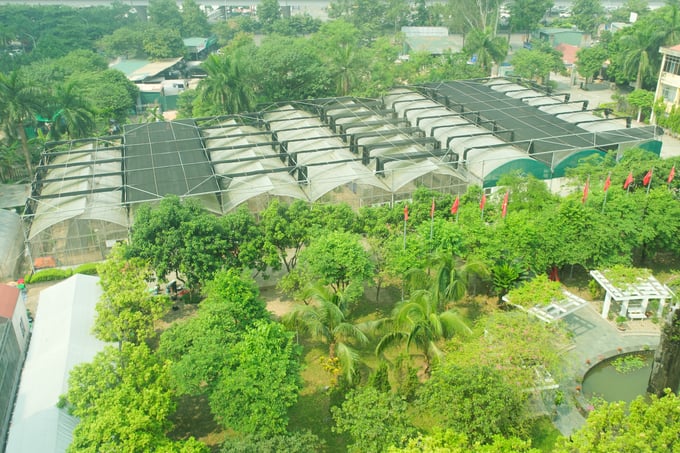
The Agricultural Genetics Institute houses one of the most advanced infrastructure and laboratory conditions among the institutions operating under the Vietnam Academy of Agricultural Sciences (VAAS). Photo: Quynh Chi.
As a result, the Institute became a pioneer in applying advanced technologies in biotechnology to agricultural production. Its team of experts developed and propagated numerous plant varieties, edible fungi, and medicinal mushrooms that feature high yield and quality, as well as resistance to pests and environmental stressors. The Institute also produces diagnostic kits for diseases, microbial formulations for disease prevention, and various plant growth stimulation products. Additionally, it performs assessments on genetically modified organisms and identifies species through molecular biology techniques.
After recognizing that autonomy is an inevitable trend, the Institute has gradually adapted to new mechanisms since 2018. Accordingly, it aimed to enhance product development through collaboration, joint ventures, and partnerships with production units and the business community. This approach helps promote the transfer of scientific products into production in addition to ensuring stability within the Institute.
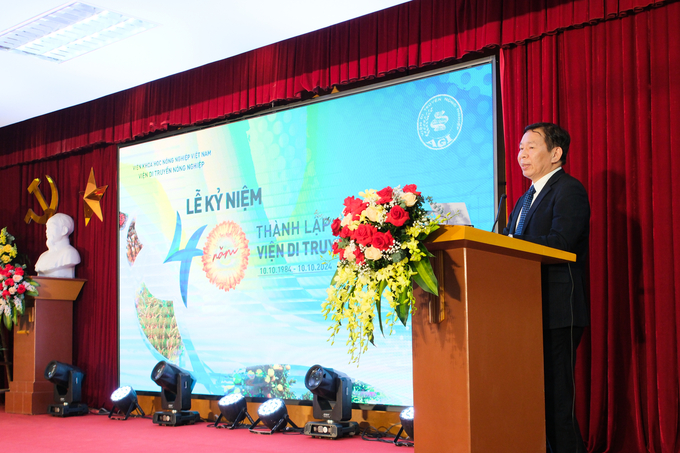
Director Pham Xuan Hoi reaffirmed that the Institute will continue to focus on scientific projects that promote fundamental research on the application of genetics and biotechnology. Photo: Quynh Chi.
In his speech commemorating the 40th anniversary of the Institute, Director Pham Xuan Hoi reaffirmed that the Institute will continue to focus on scientific projects that promote fundamental research on the application of genetics and biotechnology. Consequently, the Institute's scientific and technological outcomes are characterized by continuity, progressiveness, and practicality. The Institute's efforts have reinforced its pioneering role among the research institutes operating under the Vietnam Academy of Agricultural Sciences (VAAS) and the Ministry of Agriculture and Rural Development.
As the Fourth Industrial Revolution rapidly progresses with significant advancements in biotechnology, the Institute has taken the lead in applying molecular markers for plant breeding. This process begins with molecular mapping and the identification of molecular markers and genes/loci that regulate various traits. To date, the Institute has developed 11 new rice varieties that offer high yield, quality, and resistance to pests and environmental challenges, resulting in substantial benefits for agricultural production.
Notably, the Institute has integrated molecular marker technology with traditional breeding methods to incorporate multiple disease resistance genes against leaf blight, brown planthopper, and rice blast into various common high-yield, high-quality rice varieties. The Institute is preparing to introduce several rice varieties that carry 4 to 6 multi-factor resistance genes into production. These creations represent a groundbreaking advancement in the field of rice breeding in Vietnam.
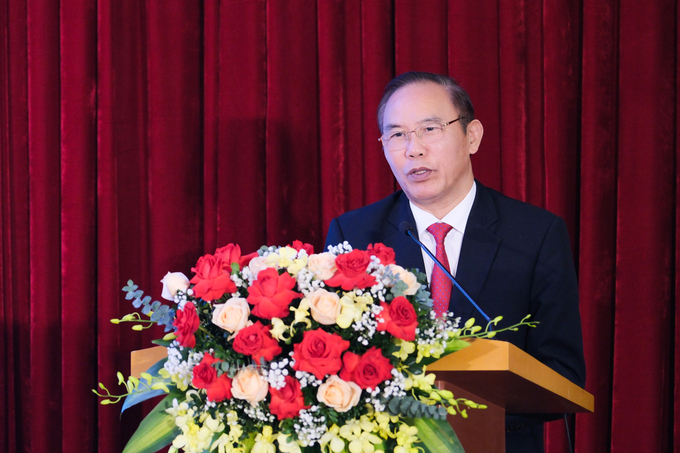
Deputy Minister of Agriculture and Rural Development Phung Duc Tien encouraged the Agricultural Genetics Institutes to continue its mission of introducing scientific and technological advancements to daily life. Photo: Quynh Chi.
At the anniversary celebration, Deputy Minister Tien praised the Institute's achievements, highlighting its contributions to the development of the agricultural sector. He affirmed that science serves as the foundation for all advancements in agriculture.
Deputy Minister Tien noted, "Research efforts at the Agricultural Genetics Institute begins in the laboratory and extends to the fields. As a result, the Institute's products are both rich and diverse."
In the laboratory, the Institute consistently pioneers in adopting and applying new knowledge, techniques, and technologies, as evidenced by numerous publications in prestigious national and international journals. In the fields, the Institute has developed numerous well-received and praised plant varieties for production. Notably, the Institute is capable of producing enduring plant varieties that meet the expectations of farmers.
Deputy Minister Phung Duc Tien affirmed that the Ministry of Agriculture and Rural Development will create a supportive and open environment for researchers to engage in in-depth studies. He encouraged the Institute to continue strengthening international cooperation and public-private partnerships with the aim of effectively transferring modern techniques and delivering scientific products to businesses and farmers in a practical manner.
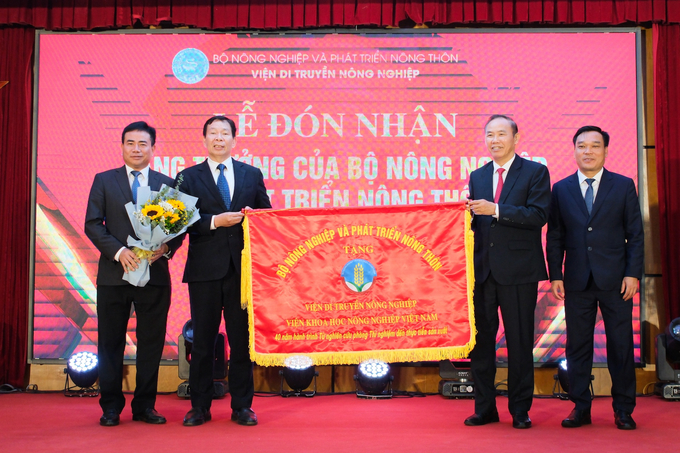
Director Pham Xuan Hoi receiving an award from the Ministry of Agriculture and Rural Development. Photo: Quynh Chi.
On behalf of Minister of Agriculture and Rural Development Le Minh Hoan, Deputy Minister Phung Duc Tien presented the commemorative medal "40 Years from Laboratory Research to Practical Production" along with various other awards to the Agricultural Genetics Institute. The Institute also honored individuals who received Labor Medals over the past five years and expressed gratitude to its former leadership.
Translated by Nguyen Hai Long

(VAN) The Deputy Minister of Agriculture and Environment underscored the necessity of addressing IUU fishing at the grassroots level and linking it to the accountability of local authorities.

(VAN) According to Deputy Prime Minister Bui Thanh Son, through this P4G Summit, Vietnam aims to convey the message of transforming its growth model towards rapid and sustainable development.

(VAN) Soybean production has been a priority for China to ensure food security, with increased soybean cultivation and yields highlighted in the annual No. 1 Central document.

(VAN) Vietnam Sea and Islands Week 2025 is expected to take place in Quang Binh, featuring a series of meaningful activities aimed at protecting the ocean through green technology solutions.
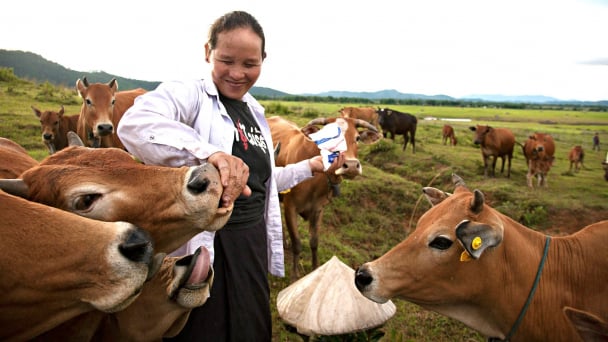
(VAN) The One Health approach is no longer merely an option, as increasingly complex challenges confront health and food systems.
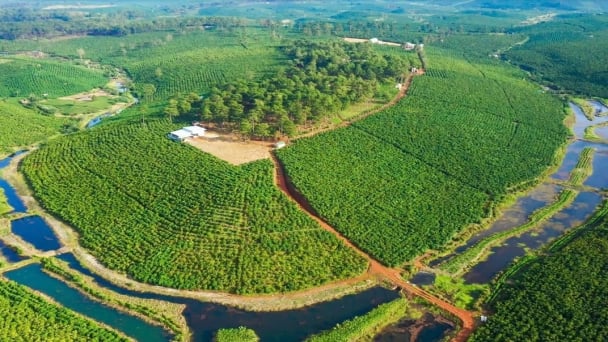
(VAN) The project promoting sustainable coffee production, with a focus on waste management and raising farmers’ awareness, has achieved many positive results after nearly two years of implementation.

(VAN) Transferring and receiving 6 individuals of the red-crowned crane from Thailand to Vietnam marks a significant milestone in the conservation efforts for this species.